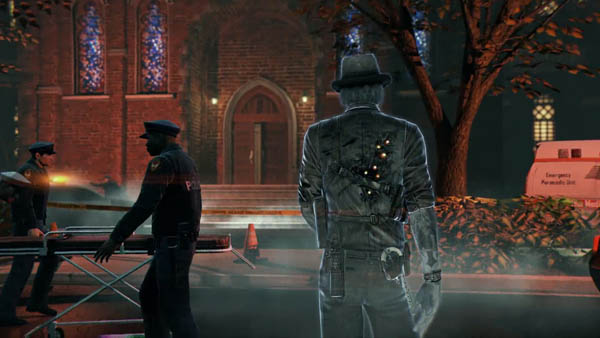

So what can Ronan do? Put his detective skills to the test. Everything you can't do that would be an annoyance in other games is clearly and politely explained up front as the design. The invisible walls that are an annoyance in other games are instead the limits of his incorporeal form's ability to move through the walls of consecrated buildings and the ghostly residue of forgotten ages past. In other games, when objects intersect and merge, it's an accidental clipping error here, Ronan is supposed to walk through cars, tables, and such as his ghostly form glows around the edges of whatever he's passing through, unable to effect the land of the living. Soul Suspect is incredibly smart in the way that it defines its limitations, using video game conventions as story elements.

The first part of the game has you shadowing the killer's target (you were just collateral damage that got in the way), a teen girl named Joy who's looking for her spirit-medium mother, with whom you eventually form a fragile alliance based on mutual need, though still couched in sarcasm. Ronan's emotional range runs from sardonic to annoyance that borders on, but never quite reaches, anger or alarm he's got the jaded-detective thing down pat.

In flashbacks and collectibles that give us insight into his relationship with his wife, we see that Ronan's tattoos stand in for the emotions his deadpan delivery won't let him express directly. It's all played very by-the-book with your tattooed hero playing everything close to his bullet-tattered vest, sarcastically commenting on everything with a wry quip.


 0 kommentar(er)
0 kommentar(er)
